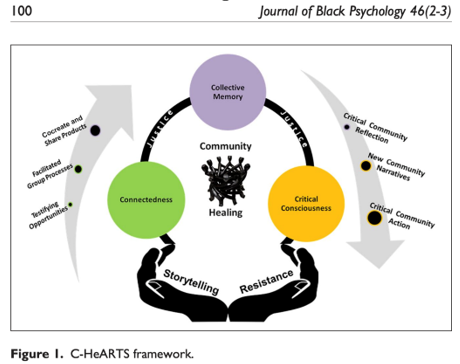
Total Credits: 2 including 2 American Psychological Association, 2 Association of Social Worker Boards, 2 National Board of Certified Counselors, 2 California Board of Registered Nurses, 2 California Consortium of Addiction Programs and Professionals
Trauma occurs when a person's or people's natural life force or "mana" is constricted or interrupted. Forms of trauma are mental, spiritual and physical and produce pain--all are all connected. Hawaiians use the word "Hihia" to describe the "knots" which form and encapsulate trauma-generated energy which prevents the natural flow of mana. Individuals and groups may seek pain relief through chemical or non-chemical addiction, a pattern of repetitive behavior as a form of ongoing yet transitory relief. In working with clients from a cultural lens, we know there is a hala (transgression or offense) that is the root cause of the hihia (entanglements or knots). We also know in using a cultural approach, Hawaiian ma'i (illness) has Hawaiian remedies (modalities) and Western ma`i has Western remedies. Mo`olelo (story telling) is one of many modalities that are used to address a client's mental, physical and most of all spiritual pain. When stories are told in a safe and supportive environment (and often in combination with prayers, rituals and other spritual observances in alignment with cultural practices), the "hihia" are unbound and the energy is released; the "hewa" is corrected. Telling "mo'olelo" also creates the portal for persons and peoples to receive restoration of dignity and assets.
Objectives:
|
No handouts Due to intellectual property, handouts will not be provided for this presentation. |
|||

Dr. Jared Yurow received his Psy.D.with a specialization in marriage and family therapy from United States International (now Alliant) University; his M.A. in Clinical Psychology from the California School of Professional Psychology—San Diego; and his M.Ed. in Counseling Psychology from Columbia University. A licensed psychologist and Ho'oponopono student, he studied under James Framo, Ph.D., a pioneer in Intergenerational Marriage and Family Therapy and Aunty Malia Craver of the Queen Lili'uokalani Trust, respectively. He has worked for the Hawaii Department of Health (DOH) for almost twenty-eight years. Since 2002 he has worked for the Hawaii Department of Health (DOH) Alcohol and Drug Abuse Division (ADAD), where he serves as Chief Clinical Officer and Clinical Psychologist Supervisor. He holds professional memberships with the American Psychological Association, Hawaii Psychological Association and American Association for Marriage and Family Therapy. He is an initiate of Psi Chi, the National Honor Society in Psychology and a registrant of the National Register of Health Service Psychologists. Since joining ADAD, he has been a member of the National Association of State Alcohol and Drug Abuse Directors (NASADAD), which represents all of the state and territorial alcohol and drug abuse service agencies. He is a Founding Member of the NASADAD National Treatment Network (NTN) (2005) and has served as Hawaii NTN since that time. He has also served as SAMHSA Division of Pharmacologic Therapies (DPT) State Opioid Treatment Authority (SOTA) for Hawaii since joining ADAD in 2002; and he has served since that time as NASADAD Hawaii Opioid Treatment Network (OTN) Representative. He has served as (US DHHS) Region IX Representative to the NTN Executive Committee and as (US DHHS) Region IX Representative to the OTN Executive Committee for many years. He is the recipient of three NASADAD awards: The Opioid Treatment Network State Representative of the Year Award (2015) and the National Treatment Network State Representative of the Year Award (2018 and 2021). He currently serves as NTN President/Treatment Vice-President on the NASADAD Board of Directors; he previously served as NTN Vice-President. He has presented locally, nationally and internationally on culture and its application to addiction recovery and its service system, including at the 2019 NASADAD Annual Meeting and Lu'au reception.

Rachel "Lahela" Kruse, MSW, CSAC, is a Cultural Practitioner, currently residing on Hawai'i Island who works closely with those dealing with substance abuse and addiction using traditional healing methods of Ho'oku'u'ka hewa for the individual then implementing Ho'oponopono for the family. Lahela is immersed in a cultural-based approach in working with haumana (students/clients) to get to the core of the individual's trauma by looking at their past so they can face their present and move forward to a healthy and thriving future. She recieved her cultural immersion training from 2 prominent Kupuna (elders) Aunty Pearl Ulunuiokamamalu Kanaka'ole Garmon and Aunty Lynette Kahekili Kahopuiki Paglinawan. Lahela recieved her Bachelor's degree in Psychology from the University of Hawai'i, Hilo then obtaining her Master's degree in Social Work from the University of Hawai'i at Manoa. Lahela has been working for 20+ years with youth, adults, and comunity dealing with the struggles of substance abuse.
Dennis, M. K., & Minor, M. (2019). Healing Through Storytelling: Indigenising Social Work with Stories. The British Journal of Social Work, 49(6), 1472-1490. https://doi.org/10.1093/bjsw/bcz044
Aho, K. L. T. (2014). The healing is in the pain: Revisiting and re-narrating trauma histories as a starting point for healing. Psychology and Developing Societies, 26(2), 181-212. https://doi.org/10.1177/0971333614549139
Chioneso, N. A., Hunter, C. D., Gobin, R. L., McNeil Smith, S., Mendenhall, R., & Neville, H. A. (2020). Community healing and resistance through storytelling: A framework to address racial trauma in Africana communities. Journal of Black Psychology, 46(2-3), 95-121. https://doi.org/10.1177/0095798420929468

Gu, Y. (2018). Narrative, life writing, and healing: the therapeutic functions of storytelling. Neohelicon, 45(2), 479-489. https://doi.org/10.1007/s11059-018-0459-4
Parks, F. M. (2007). Working with narratives: Coping strategies in African American folk beliefs and traditional healing practices. Journal of Human Behavior in the Social Environment, 15(1), 135-147. https://doi.org/10.1300/J137v15n01_07
Martin, T. K. O. K. (2019). Ho'ala Hou O Na Wahine Maoli: Reawakening of Native Hawaiian Women Exploring the Pathways to Posttraumatic Growth and Healing of formerly incarcerated Native Hawaiian female trauma survivors (Doctoral dissertation, University of Hawai'i at Manoa).